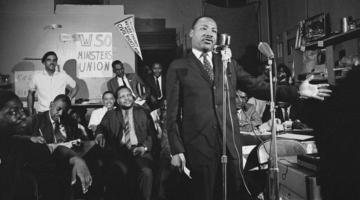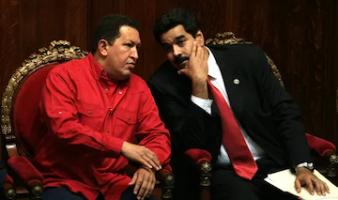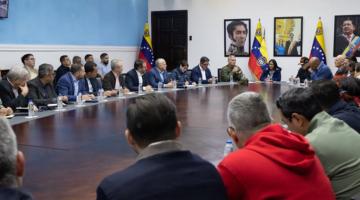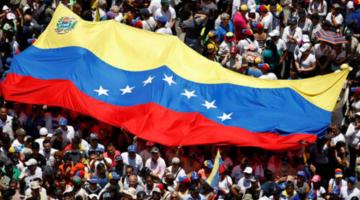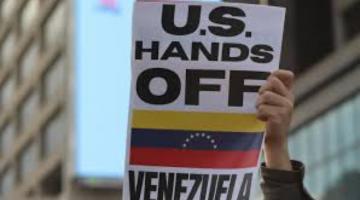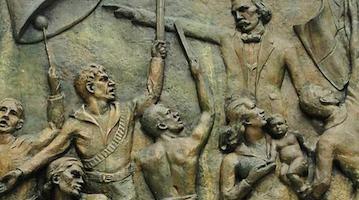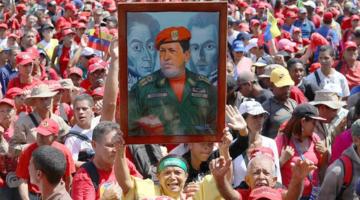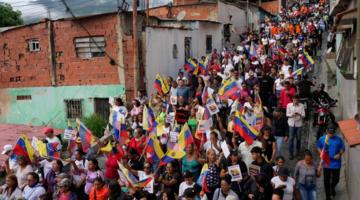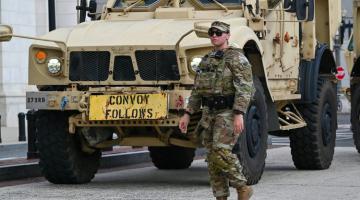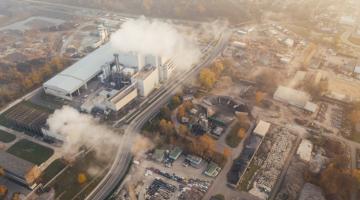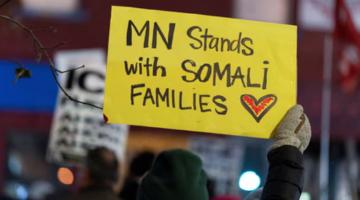The U.S. State Department's latest human rights report on Venezuela follows a familiar pattern of lying about a nation declared to be an adversary while human rights in the U.S. are violated in a multitude of ways.
Originally published in CounterCurrents.
The US State Department’s latest Human Rights Report condemns Venezuela for serious abuses. Weaponizing human rights, accusations are selectively applied to serve a destabilization campaign. In this article, a mirror is held up to Uncle Sam to see how well “America the beautiful” holds up to the same charges, while also exposing the role of sanctions, compliant NGOs, and military threats in Washington’s hybrid war on Venezuela.
The carceral state
The US report indicts Venezuela for “arbitrary or unlawful killings.” Meanwhile, in the land of the free, police killings hit a record high in in 2024. Impunity is high with charges brought against offending officers in fewer than 3% of cases.
Prolonged solitary confinement, recognized as torturous, is widespread in US prisons and ICE detention centers, affecting over 122,000 people daily. Hundreds of political prisoners languish in penitentiaries in the US and in Guantánamo, the majority of which are people of color.
The US has the largest prison population in the world (about 1.8 to 2 million) and an incarceration rate over 2.5 times greater than Venezuela’s. Even after release, about four million citizens remain disenfranchised due to felony convictions, disproportionately affecting Black communities.
As the US-based Black Alliance for Peace observes, “domestic repression in the US colonial/capitalist core is imperative to support the aggressive militarism abroad.”
This coupling of domestic subjugation with the international is painfully evident with the US imperialist/Israeli zionist aggression abroad in Gaza, while pro-Palestine advocates are suppressed at home. Zionist curricula are being imposed at all levels of education; at least half of US states now require so-called “Holocaust education.” Pro-Palestine faculty, students, and staff are being purged.
Meanwhile, the US accuses Venezuela of failing to protect refuges and asylum seekers. This projection does not deserve any rebuttal other than to mention that the US has a documented history of family separation of migrants and deaths in custody.
Social welfare
The US report scolds Venezuela for a minimum wage “under the poverty line.” Yet, its own federal minimum wage has been $7.25/hour since 2009; insufficient to lift a fulltime worker out of poverty.
A UN special rapporteur for human rights estimated that sanctions – more properly “unilateral coercive measures” – by the US and allies have caused over 100,000 excess deaths in Venezuela. Yet purported human rights NGOs Amnesty International (AI), Human Rights Watch (HRC), and the Washington Office on Latin American (WOLA) omit this glaring human toll in their reports on human rights in Venezuela.
Predictably, they make nearly identical evaluations of the Venezuelan human rights situation as does the US-dominated Organization of American States (OAS) and the US State Department itself. Their reports (AI, HRW, WOLA, US, OAS) either ignore or at best make passing references to the sanctions. No mention is made of the illegality of sanctions under international law – they are a form of collective punishment.
In other contexts, the NGOs have acknowledged the horrific human impact of sanctions. Regardless, they were in a panic that the Trump administration might ease sanctions over the Chevron license, thus rewarding bad behavior. For these soft power apparatchiks of the US imperial project, the pain endured by the Venezuelans is worth it. WOLA has been particularly vocal about counseling against direct US military intervention, when sanctions afford an equally lethal but less obvious form of coercion.
Hybrid war on Venezuela
In his first term, Donald Trump levied a $15m bounty on Maduro, framing the Venezuela government as a transnational criminal enterprise tied to terrorism. This lowered the potential threshold for extraordinary US measures. Joe Biden seamlessly upped the bounty to $25m, which Trump then doubled on August 7.
Evidence-free allegations linking the Venezuelan president to the dismantled Tren de Aragua drug cartel, the fictitious Cartel of the Suns criminal organization, and the actual Sinaloa Cartel (which is in Mexico) were conveniently used to justify invoking the Alien Enemies Act of 1798, which is supposed to be a wartime measure. This is coupled with the designation of drug cartels as foreign terrorist organizations (FTOs) and periodic threats of US military intervention.
This from the country which is the world’s biggest launderer of illicit drug money and the largest consumer of illicit drugs. Even US agencies recognize that very few of these US-bound drugs move through Venezuela.
Most recently, the US deployed an additional 4,000 troops and warships to the Caribbean and around Latin America. Venezuela responded by mobilizing its navy in its territorial waters.
Leading Venezuelan opposition politico María Corina Machado expressed her “immense gratitude” for the imperialist measures against her country, while thousands of her compatriots took the opposite stance and marched in protest. Venezuela-American Michelle Ellner calls the US policy “a green light for open-ended US military action abroad, bypassing congressional approval, sidestepping international law.”
Weaponizing human rights for regime change
Venezuela is caught in a hybrid war that is as deadly as if it were being bombed. Washington’s strangling of its economy, making wild accusations against its leaders, sponsoring opponents, and threatening armed interventions are all designed to provoke and destabilize. Venezuela’s response is best seen as self-defense against an immensely powerful foreign bully that exploits any weakness, imperfection, or lapse in vigilance.
The US weaponizes human rights to overthrow Venezuela’s Bolivarian Revolution. Its exaggerated or outright fabricated allegations are echoed by the “human rights industry.” Where problems exist, they must be viewed in the context of US economic warfare, which has strained Venezuelan institutions. North Americans genuinely concerned about Venezuelan human rights should be highly skeptical of corporate media reports and recognize the need to end US interference. Escalating provocations will only necessitate Venezuela’s greater defensiveness.
Roger D Harris is with the human rights organization Task Force on the Americas, the US Peace Council, and the Venezuela Solidarity Network.


